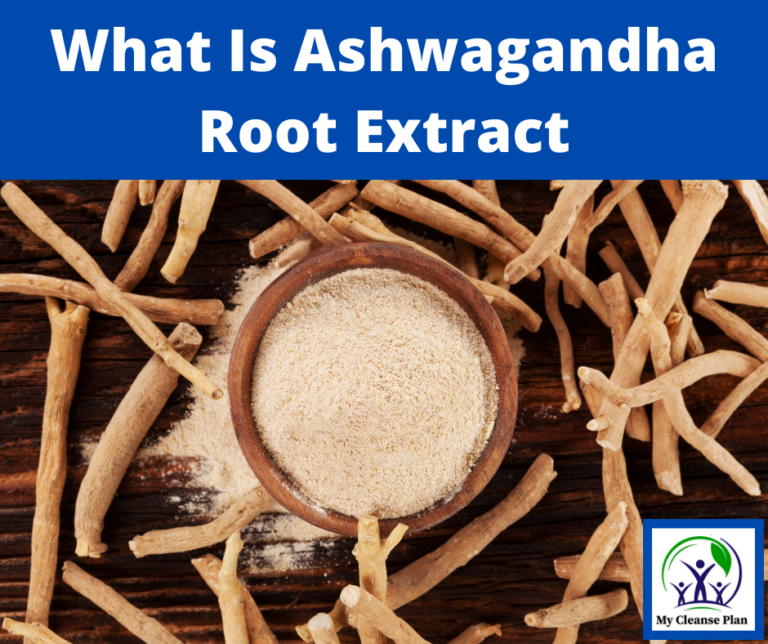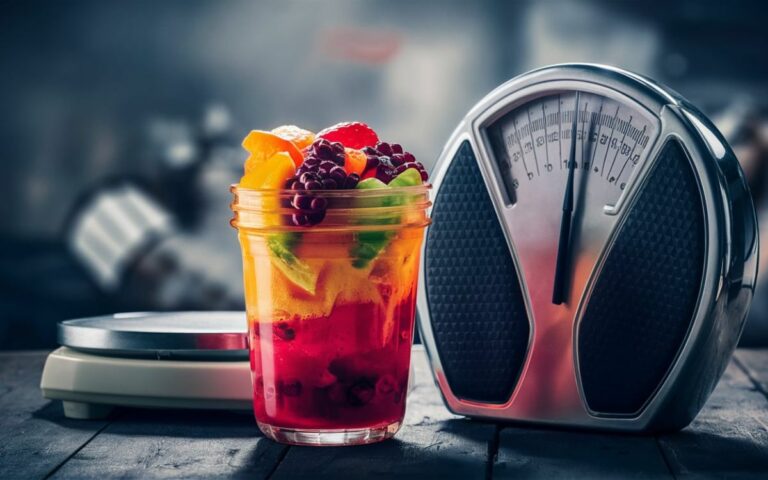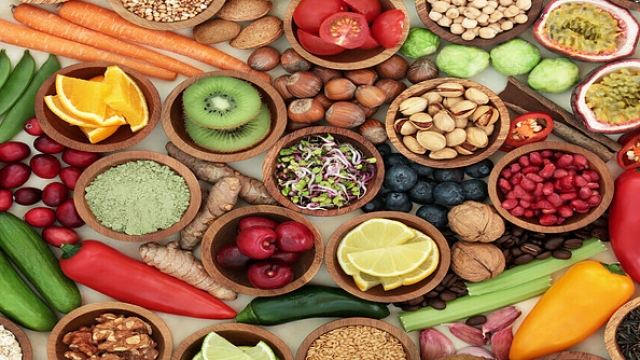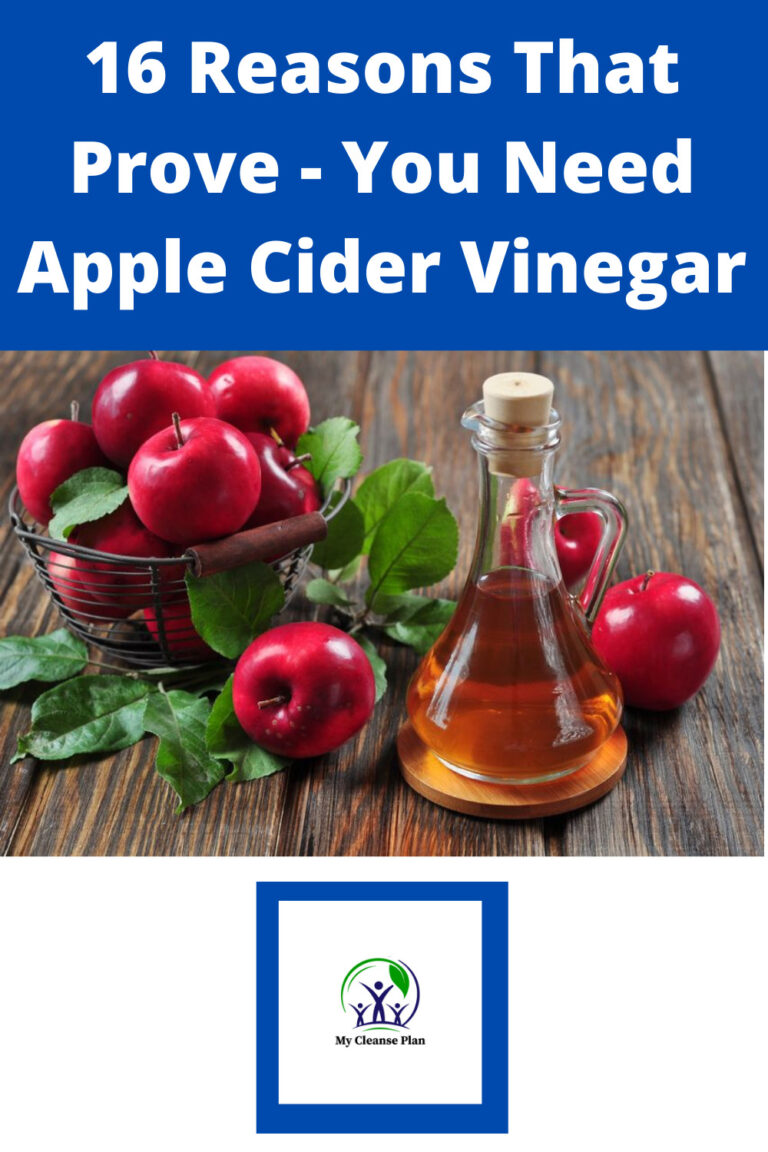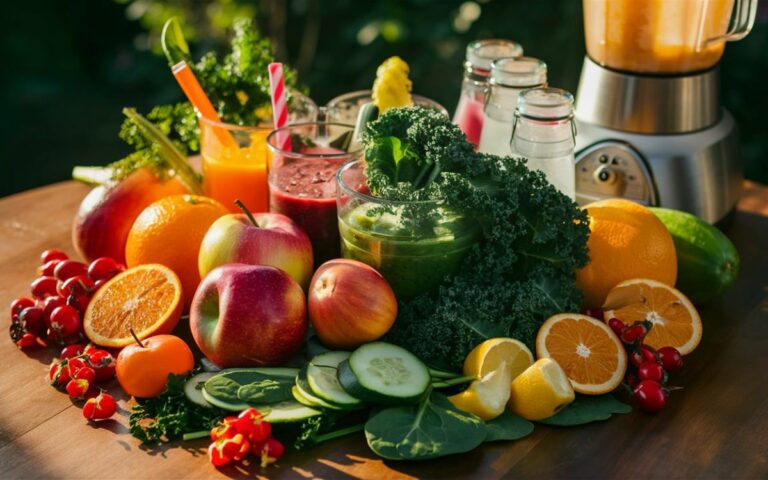How Detox Cleansing Can Improve Your Digestion
Detox cleansing can significantly improve digestion by removing toxins, reducing inflammation, and promoting a healthier gut environment.
Key Takeaway
- Detox cleansing can support digestion by removing toxins and reducing inflammation in the gut.
- Opt for nutrient-dense foods and avoid processed and inflammatory foods to support digestive health during a cleanse.
- Incorporate fiber-rich foods like fruits, vegetables, and whole grains to regulate bowel movements and promote a healthy digestive tract.
- Stay hydrated by drinking plenty of water and herbal teas to flush out toxins and support optimal digestive function.
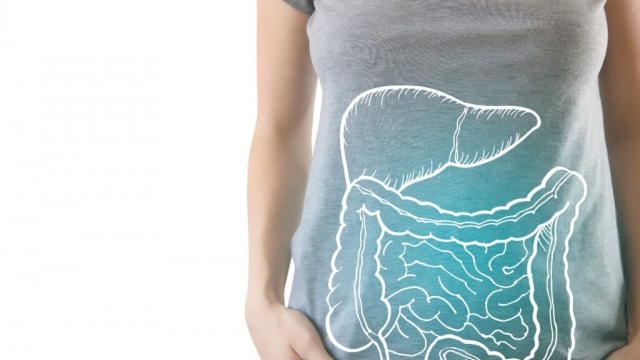
Detox cleansing has become a popular concept in the wellness sphere, often touted as a critical step for improving digestion and general health. But what exactly does it entail? It generally refers to a temporary diet that claims to remove toxins from the body, ostensibly leading to improved digestive function.
There are various notions about detox cleansing, and it’s important to demystify these to understand its real impact on the digestive system. The belief that our bodies are filled with toxins and need regular cleansing like a filter requires closer examination. While it’s true that the body accumulates waste from various sources, the body is remarkably equipped with its own detoxification systems: the liver, kidneys, and colon.
So why focus on detox cleansing for digestion? The tie-in lies in the claim that certain detox diets can support the body’s natural detoxification processes, thereby enhancing digestive efficiency. Digestion is more than merely processing food; it involves a complex system that, when working optimally, can positively affect your entire well-being.
Approaching detoxification responsibly is crucial. It’s easy to get drawn into aggressive cleansing rituals that may do more harm than good. Instead, individuals must focus on evidence-based methods and be mindful of their unique health needs and restrictions. Such a purposeful, scientific approach ensures that the decision to engage in a detox cleanse contributes positively to one’s digestive health, avoiding potential pitfalls of this practice.
Understanding Digestion: More than Just Processing Food
Your digestive system is like a meticulous manager, overseeing a complex process that’s vital to your overall health. It’s not just about turning food into energy. It’s about nutrients fueling every cell in your body, about eliminating toxins, and even about influencing your mood.
Digestion involves a myriad of activities, starting with the breakdown of food in the mouth to absorption in the intestines, and finally, waste elimination. Think of your digestive system as an assembly line where efficient processing ensures peak body performance Mycleanseplan.
Occasionally, you might face problems like bloating, gas, or irregular bowel movements. These aren’t just minor inconveniences; they’re signs that your digestive system might be struggling. And when digestion is compromised, it can ripple out, affecting your energy, immune system, and even mental clarity.
By recognizing the significance of good digestive health, you embrace the idea that a well-functioning digestive system plays a pivotal role in your overall quality of life. This will set the stage for understanding how detox cleansing may tie into digestive efficiency.
Related Article: Colon Detox Plus – The Natural Detox Cleanse Product
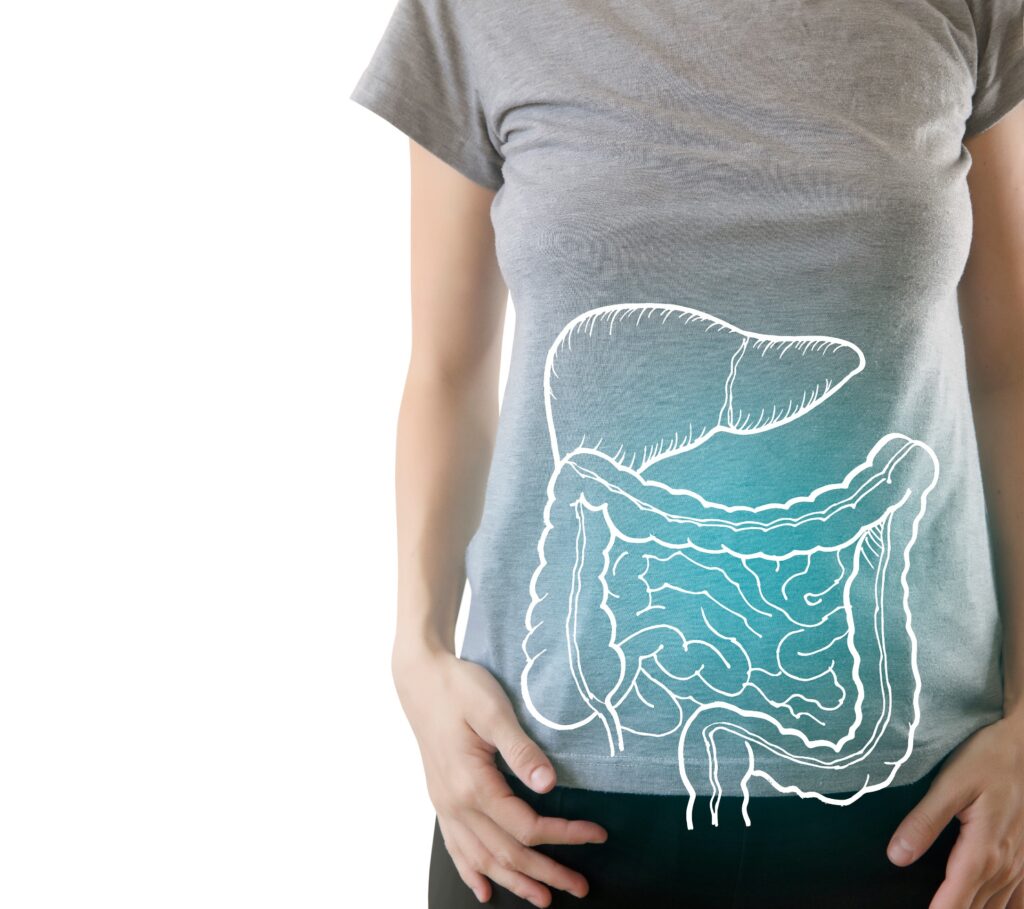
The Science Behind Detox Cleansing and Digestion
Ever wonder about the legitimacy of the buzzwords of ‘detox’ and ‘cleanse’? With numerous health trends popping up, it’s sensible to seek the science that separates fact from fad. Detox diets often claim to flush toxins, support liver function, and promote digestive health. Yet, what does the research say?
To start, it’s important to clarify ‘toxins’ in the context of detox diets. These are typically undetermined substances assumed to accumulate in the body and impair health. However, scientific literature defines toxins more narrowly — often as biologically produced poisons like snake venom or botulinum toxin. To the body’s credit, it comes equipped with its intricate detox system, thanks to the liver and kidneys, which efficiently filter out genuine toxins daily.
When it comes to detox diets specifically targeting digestion, some propose reduced intake of processed foods and increased consumption of water, fruits, and vegetables. This can indeed promote regular bowel movements and may alleviate symptoms like bloating. However, long-term benefits remain uncertain without compelling scientific evidence to support them.
Nutrition experts do see merit in aspects of detox diets that echo healthy eating patterns. Minimizing processed foods and added sugars, while emphasizing fresh produce and hydration, naturally assists digestion and can align with general dietary recommendations. Yet, credibility fades with extreme claims of toxin elimination or quick health fixes.
Related Article: SkinnyFit Detox Tea Reviews – Get The Skinny on SkinnyFit
As we continue to scrutinize detox diets through the lens of science, you might find transitioning into the next section on choosing the right detox plan fitting. An informed approach navigates through the myriad of options and cherry-picks elements backed by evidence that can truly aid your digestive wellness. Stay tuned to discover a framework for choosing a detox plan that is both effective and doesn’t compromise your health—or your taste buds.

Choosing the Right Detox Plan for Digestive Wellness
It’s crucial that you don’t jump into a detox cleanse without a plan. Just like you wouldn’t start a road trip without a map, starting a cleanse requires guidance. Think about your objectives: Are you trying to reset your gut flora or maybe alleviate bloating? Your goals will inform the type of program that best suits you.
Detox plans are abundant, and choosing one can feel overwhelming. Don’t base your decision on hype or trendiness. Focus on finding a plan that’s grounded in nutritional balance and caters to your specific dietary needs. Look for programs that include real foods, plenty of hydration, and allow for sufficient calorie intake.
Consulting with a healthcare provider, preferably a dietitian or nutritionist, can offer invaluable advice tailored to you. These professionals can help identify which, if any, detox plan fits your health profile and lifestyle. They may even advise against a detox in favor of a more sustainable approach to gut health.
After all, a detox plan is not a one-size-fits-all solution. Proper assessment of your body’s needs should always come before the commencement of any new health regimen. Keep in mind that the most effective plan for digestive wellness might be a balanced, nutrient-dense diet paired with regular exercise rather than a strict detox program.
Even after selecting a plan, monitor how your body responds. Adjusting the course based on your body’s feedback is not a sign of failure but rather a key part of personal health management. Noticing how you feel can transition smoothly to building long-term habits that support digestion, is the subject of our next section.
Related Article: What Is A Cleanse – A Brief Overview
Supporting Digestion Naturally: Beyond Detox Cleanses
Your digestion is a cornerstone of well-being, and while a short-term detox cleanse can be the kickstart for change, fostering long-term digestive health doesn’t stop there.
A sustainable approach involves everyday habits that contribute to a well-functioning digestive system without the need for frequent detox regimens. Here, I’ll highlight ways to naturally support your digestion, and in the next section, we’ll discuss how to keep track of your progress and manage expectations for continued health.
Balanced meals with a variety of nutrients lay the groundwork for powerful digestion. Including fiber-rich fruits, vegetables, and whole grains not only assists in regular bowel movements but also supports a healthy gut microbiome.
Staying hydrated is CRUCIAL. Water aids in breaking down food so nutrients can be absorbed and helps prevent constipation. Make it a goal to drink enough water throughout your day—a simple yet effective strategy to enhance digestive health.
Regular physical activity does more than just burn calories; it stimulates the gut and can improve bowel regularity. Aim for a mix of cardiovascular, strength, and flexibility exercises to keep your entire body, including your digestive system, in prime condition.
Lastly, don’t overlook the importance of probiotics and prebiotics. Found in fermented foods such as yogurt, kefir, and sauerkraut, probiotics introduce beneficial bacteria to your gut. Prebiotics, present in foods like bananas, onions, and garlic, serve as food for these good bacteria, promoting a balanced environment in the gut.
By embracing healthy eating and lifestyle choices, you’re not just supporting your digestive system; you’re building a foundation for continued vitality. Stay tuned for the next segment where I’ll talk about tracking your progress and setting realistic goals for your long-term digestive health journey.
Related Article: Can Lemon Water Reduce Belly Fat?

Monitoring Your Progress: Safe Practices and Realistic Expectations
Embarking on a detox cleanse with hopes of improving your digestive health is a decision I respect. It shows a willingness to take active steps toward better well-being. But remember, it’s crucial to approach this process with eyes wide open, understanding both the limitations and the potential benefits.
Keep track of how your body responds throughout the detox. Are you feeling more energetic? Is your digestion improving? Jotting down these observations can be enlightening and offer you tangible evidence of your progress—or a signal that it’s time to adjust your approach.
Consult with healthcare professionals if you have any concerns, especially if you have pre-existing health conditions. They can give you advice tailored to your personal health needs. Plus, their input helps manage your expectations and ensure that you’re navigating the detox process safely.
Explore Also:
Creativehouseblog
Dietsheriff
Gigasecurehome
As you move forward, recognize that detox cleansing is not a quick fix. It’s part of a broader lifestyle change that includes proper nutrition, adequate hydration, and regular physical activity. These are the pillars that will support long-term digestive health. While a cleanse might give you a kick-start, it’s these daily habits that will drive your ongoing progress mycleanseplan.
I cannot emphasize enough the importance of considering the cleanse as a starting point, not the end goal. Your journey shouldn’t end with the detox. Instead of looking for immediate transformation, focus on developing a consistent routine that incorporates healthy choices into every aspect of your life.
Finally, balance your enthusiasm for detox cleansing with a dose of patience and persistence. True change takes time to manifest, and gradual improvement is more sustainable than anything promised by overnight solutions. Stay committed to your well-being, and you’ll find that better digestive health is an attainable and worthwhile achievement.

